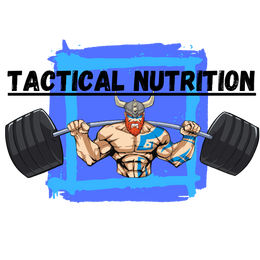Introduction
Sore knees after a long run. Aching shoulders after a tough shift. For athletes and first responders, inflammation is often the invisible barrier that slows recovery, limits performance, and increases injury risk. While some inflammation is natural — part of the body’s repair process — chronic inflammation can become a long-term problem
One natural solution that has stood the test of time is turmeric. Known for its bright golden color and active compound curcumin, turmeric has been used for centuries in traditional medicine. Today, modern research supports what ancient practices already knew: turmeric is one of the most powerful natural anti-inflammatories available.
What Is Turmeric?
Turmeric is a spice derived from the root of the Curcuma longa plant. Its active compound, curcumin, is responsible for most of its health benefits. Curcumin has been shown to reduce inflammation, act as a strong antioxidant, and support joint and muscle recovery.
Why Inflammation Matters for Athletes and First Responders
Inflammation is the body’s natural response to stress, injury, or heavy training. Short-term inflammation helps with recovery, but when it becomes chronic, it can cause:
-
Persistent joint pain and stiffness
-
Slower recovery from training or shifts
-
Increased risk of overuse injuries
-
Reduced long-term performance and health
For firefighters climbing stairs in heavy gear, police officers grappling on the street, or EMTs lifting patients repeatedly, managing inflammation is key to staying ready.
Benefits of Turmeric and Curcumin
Joint Health and Pain Relief
Studies show turmeric supplementation helps reduce joint pain and stiffness, especially in people with high physical demands.
Faster Recovery
By controlling inflammation, turmeric allows athletes and responders to bounce back quicker between workouts or shifts.
Antioxidant Support
Curcumin neutralizes free radicals, reducing oxidative stress caused by intense physical effort.
Long-Term Health
Chronic inflammation is linked to heart disease, diabetes, and arthritis. Turmeric’s anti-inflammatory properties support both short-term recovery and long-term health.
How to Use Turmeric for Recovery
Turmeric can be consumed through food, but for performance benefits, supplementation is often more effective.
-
Form: Capsules or powders standardized for curcumin content
-
Dosage: 500–1,000 mg of curcumin daily
-
Absorption: Pair with black pepper extract (piperine) or fat for better absorption
Turmeric vs. Traditional Pain Relief
Unlike NSAIDs, which can strain the stomach or kidneys with long-term use, turmeric offers a natural approach without harsh side effects. While it may not replace pain medications in all situations, it provides a sustainable way to reduce inflammation over time.
Why Tactical Athletes Should Prioritize Turmeric
For first responders, downtime is not an option. Turmeric helps control everyday aches and pains while supporting recovery between shifts. By reducing inflammation, it helps tactical professionals stay on the job longer, avoid unnecessary injuries, and improve overall performance.
Conclusion
Inflammation is unavoidable, but it doesn’t have to control your performance or recovery. Turmeric and its active compound curcumin offer a natural, research-backed solution to joint pain, soreness, and long-term inflammation.
For athletes, firefighters, police officers, and EMTs, turmeric isn’t just a supplement — it’s a powerful tool for staying resilient, reducing injury risk, and protecting long-term health.
Quick Summary
Turmeric is a natural anti-inflammatory that supports joint health, reduces pain, and speeds recovery. Athletes and first responders can use turmeric supplementation to manage inflammation, improve durability, and stay mission-ready.



